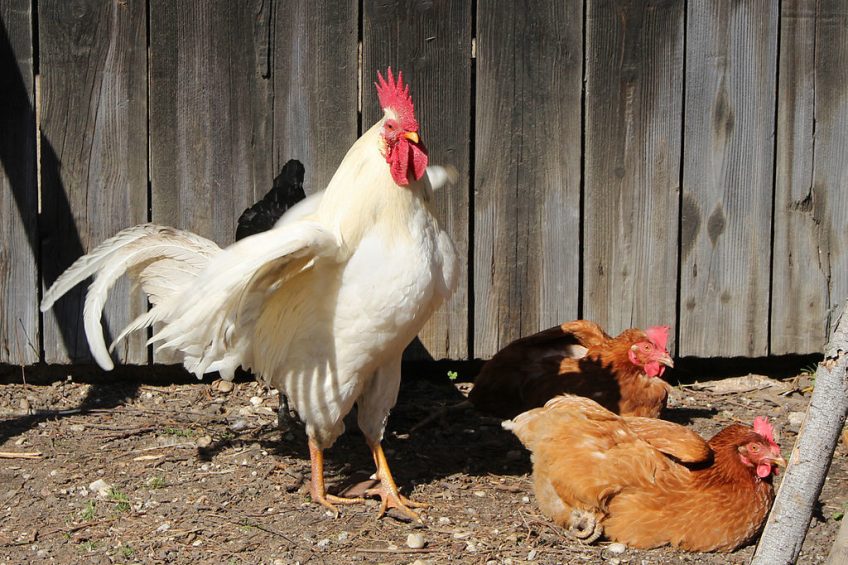Research: Why roosters don’t go deaf

Roosters have their own natural mechanism to prevent them from going deaf from their loud crowing, researchers have found.
Analysis has shown that a rooster’s crow averages over 100 decibels, which is equivalent to a chainsaw.
People who regularly use chainsaws without ear protection go deaf due to the damage to the tiny hair cells in the inner ear.
But researchers from the University of Antwerp and the University of Ghent, Belgium, have discovered why roosters don’t suffer the same consequences as chickens of both genders have such hairs in their ears
In a paper published in the journal Zoology, they outline how they placed a tiny microphone near the ears of sample roosters to measure how loud the crowing would sound and they performed micro-computerized tomography scans on the skulls of the birds.
They discovered that half of the birds’ eardrum was covered by a soft tissues that dampened incoming noise. And they also found that when the rooster tilted its head back to crow, another bit of material covered the ear canal completely, serving as a built-in ear plug.
The researchers noted the birds also have another advantage – unlike humans, birds can regrow damaged hair cells – particularly useful as the study found that sound pressure levels from the crowing can reach amplitudes of 142.3 decibels.
Roosters also tend to seek a vantage point offering maximum reach when they crow (away from the hens and chicks), making sure everyone within earshot knows that the hens that live there are his!












